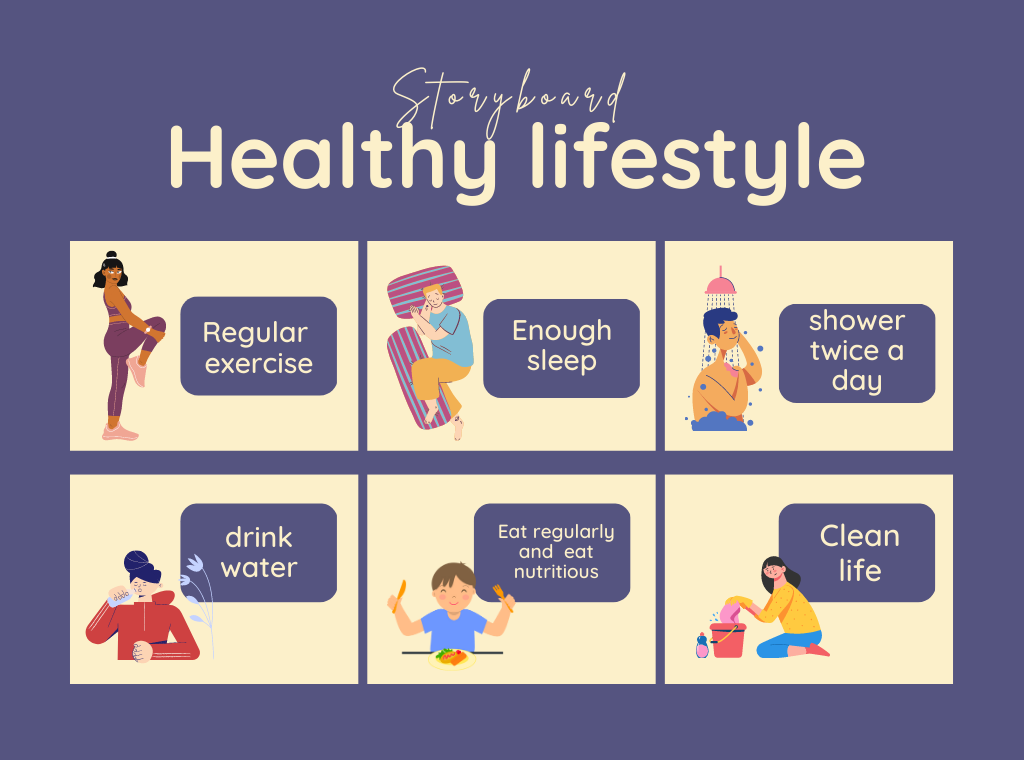Health is a multidimensional state of well-being that encompasses physical, mental, emotional, and social aspects. Good health allows us to lead fulfilling lives and engage in activities that bring us happiness and satisfaction. Good health includes exercising regularly, having sound mental health, feeling energetic, having a strong immune system, and maintaining positive relationships with others. On the other hand, poor health may result in chronic diseases, limited mobility, decreased mental capacity, and decreased ability to engage in daily activities.
Table of Contents
What is meant by good health?
Good health refers to a state of complete physical, mental, and social well-being. It is characterized by, good nutrition, a strong immune system, regular exercise, adequate sleep, sound mental health, positive relationships, and a sense of purpose in life. Good health allows individuals to engage in multiple activities. Those activities bring them happiness in their lives and give them satisfaction, So they maintain their independence in daily life.

What are the 4 Types of health?
Here are the different types of health, which encompass the different aspects of an individual’s well-being:
Physical Type
Physical health refers to the state of a person’s body and its ability to perform daily tasks and activities without undue fatigue or stress. It includes various aspects such as cardiovascular fitness, muscular strength and endurance, flexibility, body composition, and immune function.
5 Signs to know you are Physically fit
Here are some signs that indicate you are physically fit
- Good cardiovascular health: If you can engage in physical activity for an extended period without getting winded or experiencing a rapid heart rate, it may be a sign that you have good cardiovascular health.
- Strong and toned muscles: If you have good muscular strength and endurance, it may be a sign that you are physically fit. You can test your strength by performing exercises such as push-ups, pull-ups, or squats.
- Good flexibility: If you have good flexibility, it may be a sign that you are physically fit. You can test your flexibility by performing exercises such as touching your toes or performing a split.
- Healthy body weight: If you maintain a healthy body weight that is appropriate for your height and age, it may be a sign that you are physically fit.
- Good overall energy and vitality: If you feel energetic and alert throughout the day, it may be a sign that you are physically fit.
If you think you are not fully lying in this category don’t worry about it, you can improve yourself anytime. Remember, it never be late to start a new routine. Each day can be the beginning to start a new improved version of yourself.
How to Improve your Self Physically
Here are some tips on how to improve yourself physically:
- Exercise regularly: Engage in physical activities that you enjoy, such as running, cycling, swimming, or weightlifting. Exercise can help you build muscle, improve cardiovascular health, and maintain a good weight.
- Eat a balanced diet: Consume a diet rich in fruits, vegetables, whole grains, lean protein, and healthy fats. Avoid junk foods, cold drinks or artificial juices, and excessive amounts of saturated and trans fats.
- Stay hydrated: Drink plenty of water throughout the day to keep your body hydrated and functioning optimally.
- Get enough sleep: Each night take 7-9 hours of sleep to allow your body to recover and function properly.
- Reduce stress: Practice stress-reducing techniques such as meditation, deep breathing, or yoga to help manage stress levels.
- Avoid harmful habits: Avoid smoking, excessive alcohol consumption, and other harmful habits that can damage your health.
- Get regular check-ups: Visit your healthcare provider regularly for routine check-ups and screenings to catch any health problems early on.
Remember, improving your self physically takes time and dedication. Take baby steps and gradually increase your efforts over time. Celebrate your progress along the way and be patient with yourself as you work towards your goals.
Mental Health

Mental health refers to a person’s overall psychological well-being and the ability to manage their emotions, thoughts, and behaviors in a way that promotes optimal functioning and quality of life. Good mental health involves having a positive sense of self-esteem and resilience, being able to form and maintain healthy relationships, and being able to cope with life’s challenges and stresses. Mental conditions can be affected by a variety of factors, including genetic predisposition, environmental factors, life experiences, and physical health. When mental conditions are compromised, it can lead to a range of mental health disorders, such as depression, anxiety, bipolar disorder, schizophrenia, and many others.
Signs that indicate you are Mentally stable
Several signs can indicate good mental Conditions and well-being. Here are some examples:
- Positive mood: Feeling generally happy and content, with a positive outlook on life.
- Resilience: Ability to bounce back from setbacks, cope with stress, and manage difficult situations without being overwhelmed.
- Healthy relationships: Being able to form and maintain healthy, supportive relationships with family, friends, and peers.
- Self-esteem: Having a positive sense of self-worth and confidence.
- Productivity: Being able to set goals, stay motivated, and accomplish tasks efficiently.
- Good sleep: Getting adequate and restful sleep regularly.
- Enjoyment: Taking pleasure in activities and hobbies, and being able to experience joy and satisfaction in life.
How can one improve their mental state
There are many ways to improve Mental health, and the strategies that work best will vary depending on the individual’s needs and circumstances. Some helpful strategies are:
- Practice self-care: Make time for activities that you enjoy and that help you relax, such as exercise, meditation, or spending time in nature.
- Connect with others: Cultivate supportive relationships with family, friends, or peers, and consider joining groups or organizations that share your interests.
- Seek professional help: If you’re struggling with mental health issues that you can’t manage on your own, consider seeking the help of a mental health professional such as a therapist, counselor or psychologist.
- Stay physically healthy: Eat a healthy, balanced diet, exercise regularly, get enough sleep, and avoid excessive use of drugs, alcohol, or other substances.
- Manage stress: Practice stress-management techniques such as deep breathing, yoga, or mindfulness meditation to help you manage stress more effectively.
Remember that improving mental State is a process that takes time and effort, and there may be setbacks along the way. But with persistence and support, it is possible to improve mental health and achieve a greater sense of well-being.
Emotional Health:
Emotional health refers to an individual’s ability to understand, manage, and express their emotions healthily and productively. Emotional health involves having a positive outlook on life, the ability to form and maintain good relationships, and the resilience to cope with stress and adversity.
Which signs indicate you are Emotionally unfit
It can be difficult to recognize the signs of emotional unfitness in yourself, as symptoms may develop gradually over time or may be difficult to identify. However, here are some signs that may indicate that you are struggling with emotional unfitness:
- Persistent feelings of sadness, anxiety, anger, or irritability that don’t go away, or interfere with your daily life.
- Difficulty managing and controlling your emotions, such as feeling overwhelmed by them or feeling like your emotions control your thoughts and behaviors.
- Difficulty forming and maintaining healthy relationships, such as feeling disconnected from others, having trouble setting boundaries, or struggling to communicate effectively.
- A lack of motivation or interest in things you used to enjoy, or feeling like life has lost its meaning or purpose.
- Difficulty coping with stress, adversity, or challenges, and feeling like you’re not able to bounce back from setbacks.
- Engaging in harmful behaviors, such as substance abuse, self-harm, or risky sexual behavior.
How to cope up or improve Emotional State
Many strategies can help you cope with and improve your emotional health. Here are some tips that may be helpful:
- Practice self-care: Make sure you’re taking care of your basic needs, such as getting enough sleep, eating a good diet, and getting regular exercise. Engage in activities that you enjoy and that help you relax, such as reading, taking a bath, self-care or spending time outdoors.
- Connect with others: Cultivate positive relationships with friends, family, and other supportive people in your life. Make time for social activities and try to communicate openly and honestly with those around you.
- Develop coping skills: Learn effective strategies for managing stress and negative emotions, such as deep breathing, meditation, or mindfulness exercises. Seek professional help if you need support in developing coping skills.
- Seek professional help: If you’re struggling with emotional issues, seek the help from health department, such as a therapist or counselor. They can provide guidance and support in improving your emotional well-being.
- Practice gratitude: Focusing on the positive aspects of your life and expressing gratitude for the things you have can help improve your mood and outlook on life.
- Engage in meaningful activities: Pursue activities that give you a sense of purpose or meaning, such as volunteering, pursuing a hobby, or setting and achieving personal goals.
Overall, coping with and improving your emotional State is a process that may involve a variety of strategies and approaches. It’s important to be patient and compassionate with yourself as you work to improve your emotional well-being.
Social & Behavioral Type:
Social and behavioral health refers to the relationship between an individual’s social context and their behaviors, actions, and health outcomes. Social and behavioral factors can significantly impact an individual’s health and well-being, including their risk for developing chronic diseases and mental health conditions.
How do you know you have social & Behavioral issues
There are several signs that may indicate a lack of social or behavioral health. Here are some examples:
- Social isolation: Feeling disconnected from others and experiencing a lack of social support.
- Difficulty forming and maintaining relationships: Struggling to connect with others and build meaningful relationships.
- Unhealthy behaviors: Engaging in behaviors that negatively impact on your self, such as tobacco or substance use, poor diet, or lack of physical activity.
- Chronic stress: Feeling overwhelmed by stress and experiencing physical or mental state symptoms as a result.
- Unsafe living conditions: Living in unsafe or unhealthy environments that negatively impact physical or mental health.
How to improve Social and Behavioral health
Improving social and behavioral health can involve a range of strategies and approaches. Here are some strategies that may be helpful:
- Build social support: Make an effort to build and maintain positive relationships with others. Join groups or clubs that align with your interests, attend social events, or consider volunteering for a cause you care about.
- Practice healthy behaviors: Focus on making positive changes to your lifestyle behaviors, such as eating a healthy diet, getting regular exercise, and avoiding harmful substances like tobacco and drugs.
- Manage stress: Develop effective stress management techniques, such as practicing mindfulness or meditation, taking breaks throughout the day, or engaging in activities that you find relaxing.
- Seek support: If you’re struggling with your social or behavioral health, seek the help of a health care Professional. They can provide guidance and support in developing a plan to improve your social and behavioral health.
Wrap up
Each of these types of health is interrelated and can impact one another. Maintaining good health in all areas is essential for overall well-being and happiness.

[…] is a key factor in beauty: A healthy body is considered more beautiful than an unhealthy one. Good nutrition, exercise, and healthy habits […]
weight lifting, swimming, cycling, or yoga, among others. Regular exercise is important for overall health and well-being, as it can improve physical and mental health, reduce the risk of chronic diseases
that can help boost the immune system and maintain your health, during cold and flu season include citrus fruits, garlic, ginger, honey, green tea, and chicken